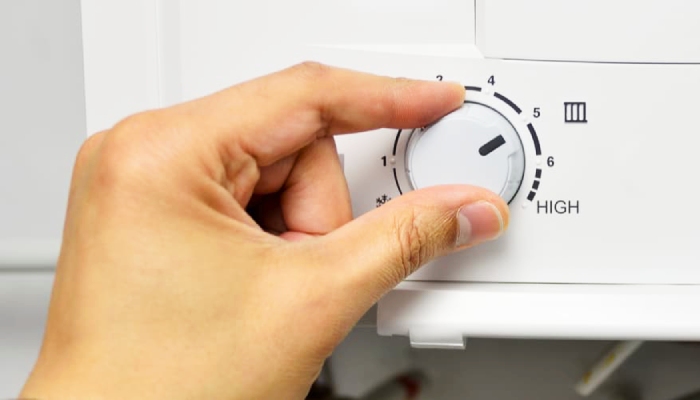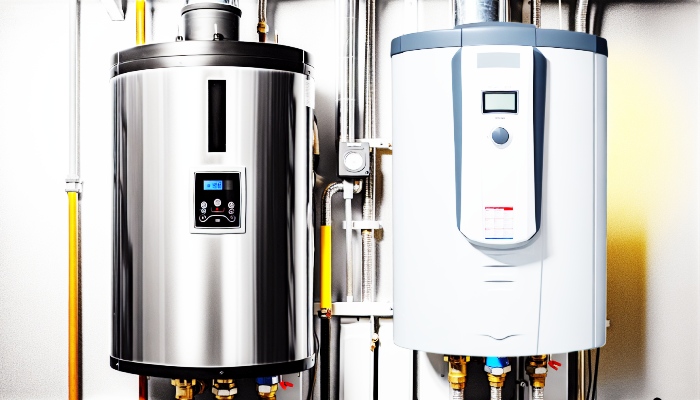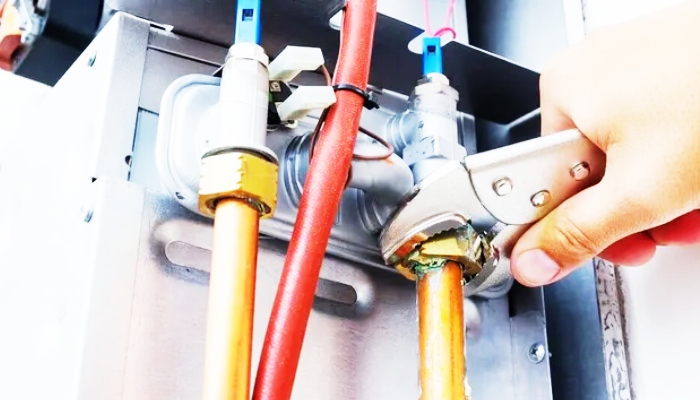
Creating more sustainable living environments often turns our focus towards the appliances and systems we use daily, none more so than our hot water systems. These essential fixtures of modern homes are pivotal not only for comfort and convenience but also for their significant role in household energy consumption and environmental impact. As the world becomes increasingly aware of the importance of energy efficiency and reducing carbon footprints, the hot water system stands out as a critical area for innovation and improvement.
We explore how advancements in water heating technology are not just about saving money but are crucial for preserving our planet. By examining tankless water heaters, solar heaters, and full storage water heaters and pump systems, among others, we aim to provide a comprehensive overview of how these systems work, their benefits, and their drawbacks. Our goal is to equip homeowners with the knowledge to make informed decisions about choosing the right eco-friendly hot water system for their home, ultimately contributing to a more sustainable and energy-efficient future.
With a focus on understanding the nuances of each system, their operational mechanisms, and the considerations involved in selecting and installing the most appropriate system, we invite you on a journey through the evolving landscape of hot water heating technologies. Whether you’re considering an upgrade to storage hot water systems, or are simply curious about how your current system impacts the environment, this article offers valuable insights into making more environmentally responsible choices for your home.

Understanding Hot Water Systems
Hot water systems are a cornerstone of daily life, providing the essential comfort of hot water for bathing, cleaning, and more. At their core, these systems function by heating water and distributing it throughout a home or building, ensuring that hot water is readily available when needed. The complexity and efficiency of a hot water system can vary widely, depending on the technology and energy source used. A crucial component in maintaining the safety and efficiency of these systems is the hot water system valve.
This valve plays a vital role in regulating water flow and pressure within the system, preventing potential issues such as water backflow and ensuring that the system operates within safe parameters. Whether it’s a traditional storage tank model, a tankless system, or an eco-friendly alternative like solar or heat pump water heaters, understanding the mechanics, including the role of the hot water system valve, is key to optimizing performance and minimizing environmental impact.
By familiarizing ourselves with the different types of hot water systems and their components, we can make informed decisions that align with our environmental goals and household needs, ensuring electric hot water systems are a balance between comfort, efficiency, and sustainability.
Traditional Hot Water Systems
Traditional hot water systems, with their straightforward operation and long history of use, offer several key advantages that continue to make them a popular choice among homeowners. Known for their reliability, these pump hot water systems provide a constant supply of hot water that meets the needs of households of various sizes. Here are some of the positive aspects of traditional hot water systems:
- Reliability and Simplicity: One of the most significant benefits of traditional hot water systems is their reliability. They have a simple design with fewer moving parts, which means there are fewer things that can go wrong. This simplicity also makes them easier to repair, with parts and expertise readily available.
- Consistent Hot Water Supply: Traditional systems come with a large tank that stores heated water, ensuring that hot water is always available on demand. This can be particularly beneficial for families or situations where hot water usage is high, providing the assurance that you won’t suddenly run out of hot water during peak times.
- Ease of Installation: These systems are generally easier and less expensive to install compared to some newer technologies. They can often be integrated into a home’s existing plumbing and energy infrastructure without the need for extensive modifications.
- Cost-Effective Solutions: For many people, the initial cost of a traditional hot water system is a significant advantage. They tend to be less expensive upfront than some of the more technologically advanced systems, making them accessible to a wider range of homeowners.
- Flexibility in Energy Sources: Traditional hot water systems can be powered by electricity, natural gas, propane, or oil, providing flexibility depending on local utilities and personal preference. This versatility ensures that homeowners can choose the most cost-effective or preferred energy source available to them.
Despite the growing interest in more energy-efficient and eco-friendly alternatives, traditional hot water systems remain a testament to the principle of “if it’s not broken, don’t fix it.” Their continued use underscores their ability to provide dependable and reliable hot water, in a straightforward, cost-effective manner, proving that sometimes, traditional methods can stand the test of time quite effectively.

Tankless (On-Demand) Water Heaters
Tankless water heaters, also known as on-demand water heaters, represent a significant advancement in water heating technology. Unlike traditional systems heat pumps that store heated water in a tank, tankless water heaters warm water directly as it flows through the device, providing hot water only when it’s needed. This innovative approach offers several compelling advantages, making tankless water heaters an increasingly popular choice for homeowners seeking efficiency and sustainability.
- Energy Efficiency: One of the most notable benefits of tankless water heaters is their superior energy efficiency. By heating water on demand rather than maintaining a constant supply at a preset temperature, these systems can significantly reduce energy consumption. This not only leads to lower utility bills but also contributes to a reduction in carbon footprint, aligning with environmental sustainability goals.
- Endless Hot Water Supply: Tankless water heaters provide a continuous flow of hot water, eliminating the frustration of running out of hot water during back-to-back showers or when using multiple appliances simultaneously. This feature is particularly beneficial for larger households or any setting where hot water demand is high.
- Longevity and Lower Operating Costs: With fewer moving parts and no need to store water, tankless water heaters generally have a longer lifespan than traditional tank models. This longevity, combined with lower operating costs due to energy efficiency, means that while the initial investment may be higher, the overall cost savings over time can be substantial.
- Space Savings: The compact size of tankless water heaters frees up valuable space in the home. These units can be mounted on a wall, tucked away in a closet, or installed in other tight spaces, making them ideal for smaller homes or apartments where space is at a premium.
- Improved Water Quality: Since tankless water heaters do not store water, the risk of rust and sediment buildup is significantly reduced, potentially improving the quality of the hot water produced. This feature can be particularly important in areas with hard water or for households prioritizing water quality.
- Flexibility and Scalability: Some homes may benefit from installing multiple tankless units, allowing for a tailored approach to hot water distribution. This scalability ensures that hot water is efficiently delivered where and when it’s needed, enhancing overall home comfort.
Tankless water heaters mark a leap forward in both technology and environmental stewardship. By offering efficiency, convenience, and long-term savings, electric storage water heaters, they address many of the limitations of traditional water heating systems, making them an attractive option for the modern, eco-conscious homeowner.
Solar Water Heaters
Solar water heaters represent a significant leap towards integrating renewable energy sources into everyday living, offering a sustainable solution to meet household hot water needs. By harnessing solar energy, these systems provide an environmentally friendly alternative to conventional water heating methods, significantly reducing reliance on fossil fuels and decreasing greenhouse gas emissions. Here are some of the key features and benefits of solar water heaters:
- Renewable Energy Source: The most striking advantage of solar water heaters is their use of the sun’s energy, an abundant and completely renewable resource. This reduces the environmental impact associated with traditional energy sources like natural gas or electricity, which can contribute to pollution and climate change.
- Cost Savings: While the initial setup cost of a solar water heater can be higher than that of traditional systems, the long-term savings are substantial. By utilizing free solar energy, households can significantly reduce their energy bills. Over time, these savings can offset the initial investment, making solar water heaters economically advantageous.
- Reduced Carbon Footprint: By decreasing dependency on non-renewable energy sources for heating water, solar water heaters directly contribute to a reduction in carbon emissions. This shift is crucial for mitigating the effects of climate change and moving towards a more sustainable future.
- Low Maintenance Requirements: Solar water heating systems are known for their durability and typically require minimal maintenance. This reliability, combined with the longevity of solar panels (often lasting 20 years or more), makes solar water heaters a hassle-free solution for environmentally conscious homeowners.
- Versatility and Scalability: Solar water heaters can be adapted to almost any climate, though their efficiency might vary depending on geographical location and sun exposure. Additionally, systems can be scaled to meet the specific hot water needs of a household, whether it’s for a small family or a larger community facility.
- Incentives and Rebates: Many governments and local authorities offer incentives, rebates, or tax credits for installing renewable energy systems, including solar water heaters. These incentives further lower the barrier to adoption and enhance the financial viability of choosing solar energy for water heating needs.
Solar water heaters stand out as a testament to the potential of renewable energy to revolutionize how we think about and use resources in our daily lives. By providing an effective and sustainable way to meet hot water needs, solar water heaters not only offer environmental and economic benefits but also align with a global movement towards energy independence and environmental stewardship.

Heat Pump Water Heaters
Heat pump water heaters (HPWHs) are at the forefront of water heating technology, offering an innovative solution that combines efficiency with eco-friendliness. These systems operate on a simple yet effective principle: instead of generating the heat pump hot water directly, they move heat from one place to another utilizing the ambient air or ground as a source. This process makes HPWHs significantly more energy-efficient than traditional water heating methods. Here’s a closer look at the benefits and workings of heat pump water heaters:
- High Energy Efficiency: Heat pump water heaters are known for their exceptional energy efficiency. By using electricity to move heat rather than to generate it, they can be two to three times more energy-efficient than conventional electric resistance water heaters. This efficiency translates into substantial energy and cost savings over the system’s lifespan.
- Environmental Impact: The high efficiency of HPWHs means they have a lower environmental footprint. By consuming less electricity, they reduce the demand on power plants and consequently decrease the amount of fossil fuels burned for electricity production. This reduction in energy use directly correlates with lower greenhouse gas emissions, contributing to efforts against climate change.
- Cost Savings: Despite a higher initial investment compared to traditional water heaters, the operational cost savings of HPWHs can be significant. Their high efficiency means lower electricity usage, resulting in noticeable reductions in utility bills. Over time, these savings can offset the upfront cost, making HPWHs a financially sound choice in the long term.
- Versatile Installation Options: Heat pump water heaters can be installed in a variety of settings, including basements and utility rooms, provided there’s enough space and adequate air circulation. Some models can even be integrated with existing heating and cooling systems to further optimize energy use and savings.
- Improved Indoor Air Quality: As a byproduct of their operation, HPWHs can help dehumidify the spaces in which they are installed. This can be particularly beneficial in damp areas, improving indoor air quality and comfort.
- Incentives and Rebates: Many regions offer incentives, rebates, or tax credits for the installation of energy-efficient appliances, including heat pump water heaters. These incentives can help offset the initial purchase and installation costs, making the switch to a more efficient water heating solution more accessible.
Heat pump water heaters embody the progress being made in household energy efficiency, providing a practical solution for reducing energy consumption and exploring the environmental impact of different hot water systems. By leveraging the ambient air or ground to heat water, HPWHs offer a sustainable, cost-effective alternative for those looking to upgrade their home’s water heating system.
Choosing the Right Eco-Friendly Hot Water System for Your Home
Deciding on the best eco-friendly hot water system for your home involves understanding the unique benefits of each type. Whether you prioritize energy efficiency, cost savings, environmental impact, or a combination of these factors, there’s a hot water system that aligns with your household’s needs and values. Here’s how each solar hot water system stands out:
Traditional Hot Water Systems
Known for their reliability and straightforward design, traditional cold water systems offer the benefit of simplicity and ease of use. They are generally less expensive to purchase and install than more advanced systems, making them a cost-effective option for immediate needs. For homes with limited access to renewable energy sources or in regions where such technology is still developing, traditional hot water systems can serve as a practical interim solution.
Tankless (On-Demand) Water Heaters
The hallmark of tankless water heaters is their energy efficiency. By heating water only as it’s needed, these systems avoid the standby energy losses associated with traditional tank systems. This can lead to significant savings on energy bills over time. Tankless units also boast a smaller footprint, saving valuable space in your home.
Solar Water Heaters
Embodying the essence of eco-friendliness, solar water heaters harness the sun’s power to heat water, reducing dependency on electricity or gas. This not only cuts down on energy costs but also significantly lowers your home’s carbon footprint. Ideal for sunny locales, solar water heaters offer a sustainable solution high hot water demand that taps into an inexhaustible renewable resource.
Heat Pump Water Heaters
These systems stand out for their remarkable efficiency. By extracting heat from the air or ground and using it to heat water, heat pump water heaters can be up to three times more energy efficient than traditional electric heaters. This translates to marked energy savings and a reduced environmental impact, making the electric systems using them a smart choice for eco-conscious homeowners.
When choosing the right eco-friendly hot water system for your home, consider the following:
Initial Investment vs. Long-Term Savings
Evaluate the upfront costs against potential energy savings and rebates. Systems like solar power and heat pump water heaters may have higher initial costs but offer significant savings and environmental benefits over time.
Household Demand and Usage Patterns
Consider your household’s hot water usage patterns. Larger families or homes with high water usage may benefit more from certain systems over others.
Local Climate and Environmental Conditions
The efficiency of solar hot water systems, and heat pump systems can be influenced by your local climate. Sunny areas favor solar water heaters, while heat pump water heaters are versatile but may perform differently depending on ambient temperatures.
Each hot water system offers distinct advantages, and the best choice depends on your personal priorities, environmental conditions, and financial considerations. By carefully weighing these factors, you can select a system that not only meets your hot water needs but also aligns with your commitment to sustainability and eco-friendliness.

Energy Efficiency Upgrades for Hot Water Systems
Improving the energy efficiency of your hot water system not only reduces your energy consumption but also lowers utility bills and minimizes your environmental footprint. Whether you’re looking to upgrade an existing system or install a new one, there are several strategies and technologies that can help enhance efficiency and sustainability of solar hot water well. Here are key upgrades to consider for your hot water system:
- Insulation Blankets: Adding an insulation blanket to a traditional hot water tank can significantly reduce heat loss, keeping the water hotter for longer periods and decreasing the need for the system to reheat water as frequently. This simple upgrade can make a substantial difference in energy consumption for tank-based systems.
- Low-Flow Fixtures: Installing low-flow showerheads and faucets reduces the amount of hot water used without compromising on performance. By decreasing hot water consumption, you can achieve considerable energy savings, especially in households with high usage.
- Tankless Water Heater Conversion: Switching from a traditional tank system to a tankless or on-demand water heater can drastically cut energy usage. Tankless systems heat water directly as it flows through the unit, eliminating the energy waste associated with keeping a large tank of water constantly heated.
- Solar Water Heating Systems: Incorporating solar panels or a solar thermal system to preheat the water before it enters your hot water heater can dramatically reduce the amount of electricity or gas required to bring the water up to temperature. This upgrade leverages renewable energy, cutting costs and carbon emissions.
- Heat Pump Water Heater Installation: For those in climates suitable for heat pump technology, replacing an old electric or gas water heater with a heat pump water heater can offer significant efficiency gains. Heat pump water heaters use electricity to move heat from the air or ground to heat water, using less energy compared to traditional heating methods.
- Timer Installations: Adding a timer to your hot water system can control when the system heats water, ensuring it only operates when needed. For families with predictable hot water usage patterns, this can avoid unnecessary heating during off-peak hours.
- Regular Maintenance: Regardless of the system type, regular maintenance is crucial for operating at peak efficiency. This includes tasks such as flushing the tank to remove sediment, checking for leaks, and ensuring the system’s settings are optimized for your household’s needs.
- Upgrade to Energy-Efficient Models: If your hot water system is old or inefficient, upgrading to a newer, more energy-efficient model can have a profound impact. Look for units with a high Energy Star rating, indicating superior efficiency and performance.
By implementing one or more of these energy efficiency upgrades, you can enhance the performance of your hot water system significantly reduce energy bills, leading to immediate and long-term savings and environmental benefits. Each option represents a step towards more sustainable living, contributing to a reduced carbon footprint and a healthier planet.
Conclusion
Selecting an eco-friendly hot water system is a key step towards reducing energy consumption and environmental impact. From the reliable traditional systems to the efficient tankless models, the renewable solar heaters, and innovative heat pump options, each offers distinct advantages. By evaluating your household’s specific needs and environmental goals, you can choose a more energy efficient system that not only saves energy and money but also supports a sustainable future. Ultimately, the right choice blends efficiency with eco-consciousness, making every drop of hot water part of a greener home.
